LaTeX templates and examples — BibLaTeX
Recent
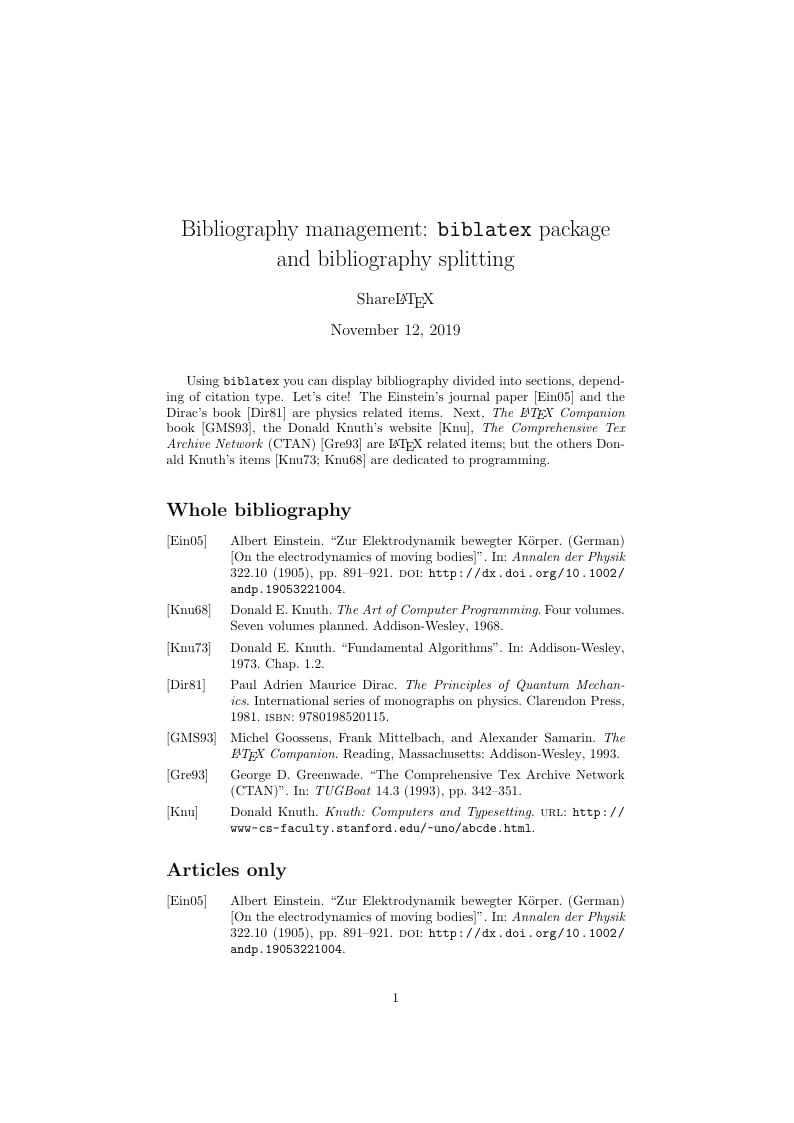
This example shows how to split your bibliography into different sections using BibLaTeX. This example was originally published on ShareLaTeX and subsequently moved to Overleaf in November 2019.
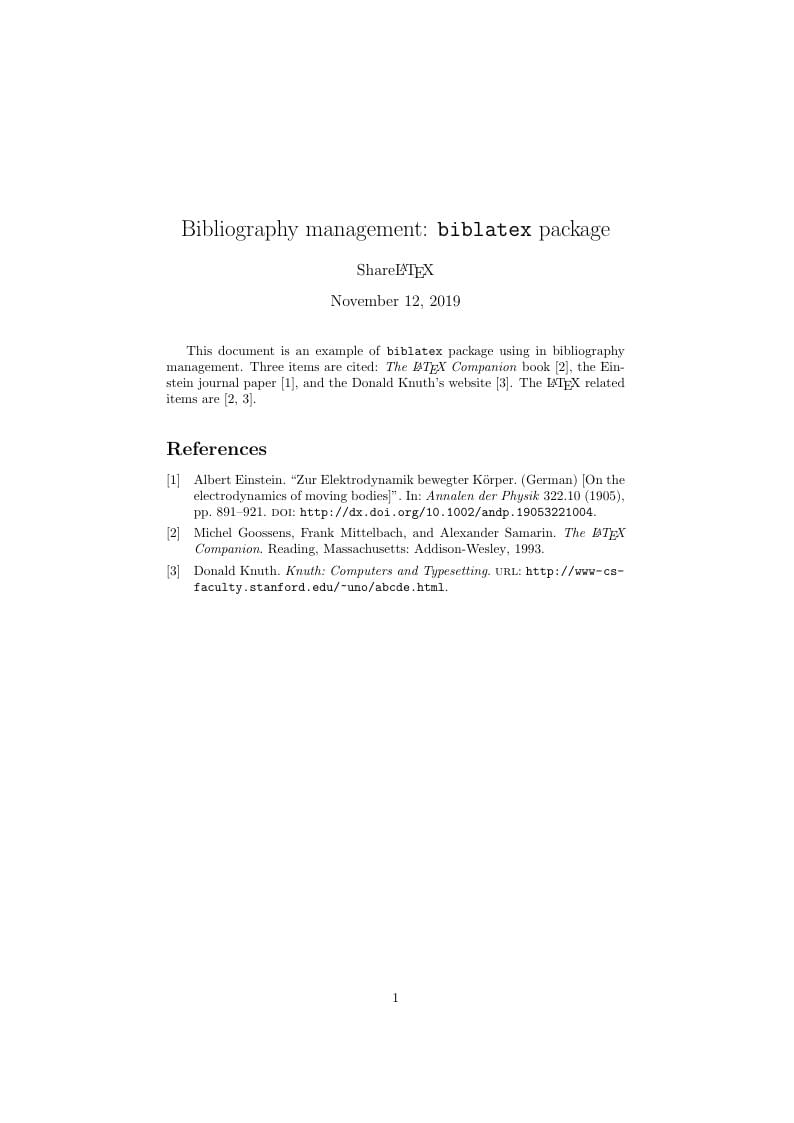
This document is an example of using BibLaTeX (with backend=biber) for bibliography management. This example was originally published on ShareLaTeX and subsequently moved to Overleaf in November 2019.
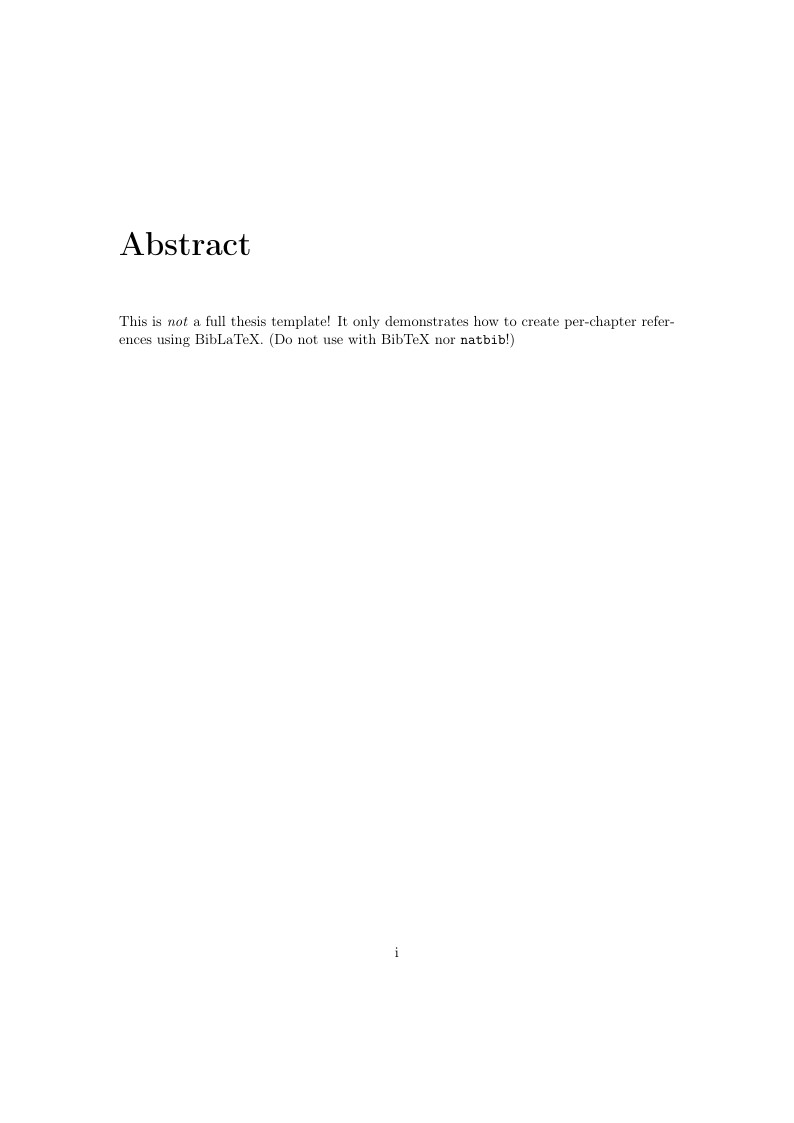
This is not a full thesis template! It only demonstrates how to create per-chapter references using BibLaTeX. (Do not use with BibTeX nor \code!)
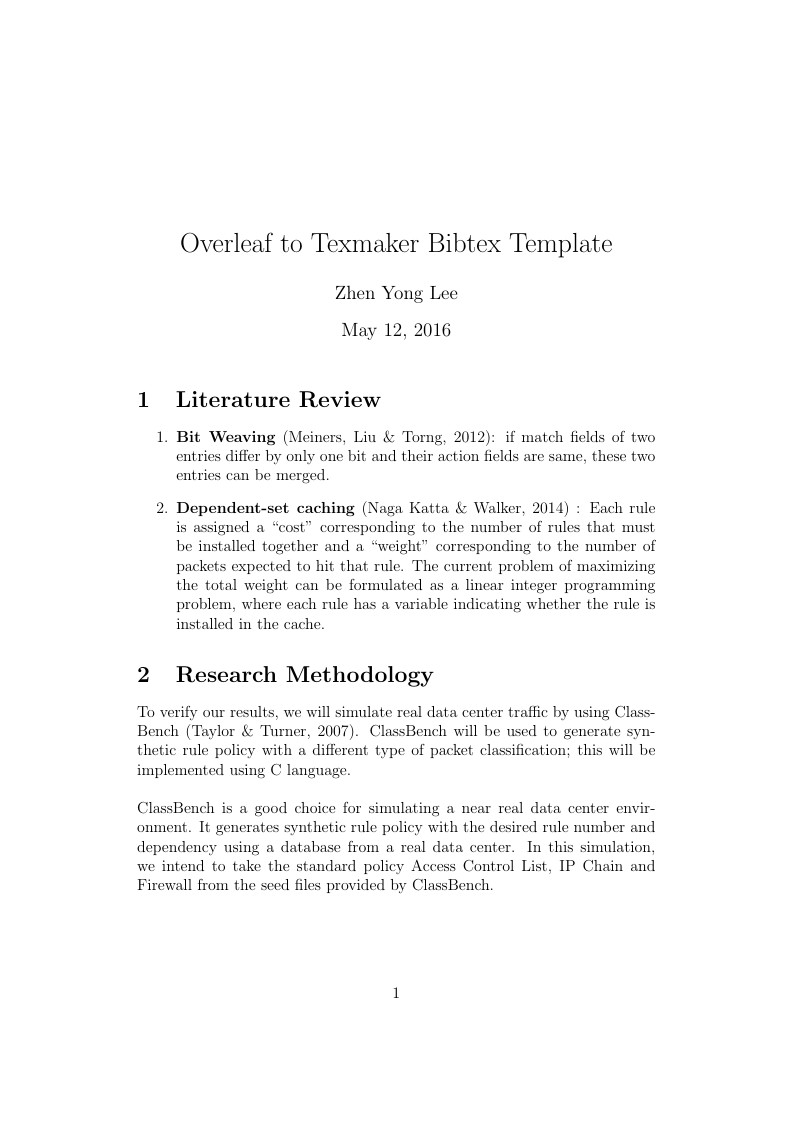
get bibtex working on both in Overleaf (BibLaTeX) and Texmaker (MiKTeX, Apacite)
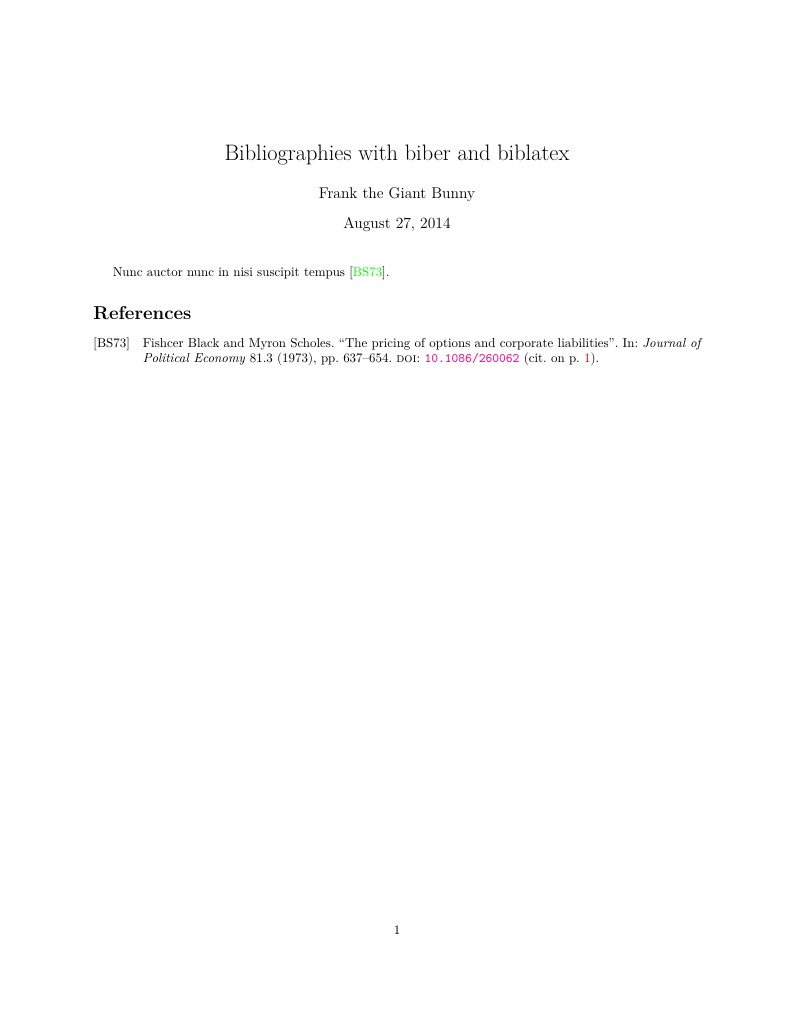
How to use biblatex with bibier and hyperref package.
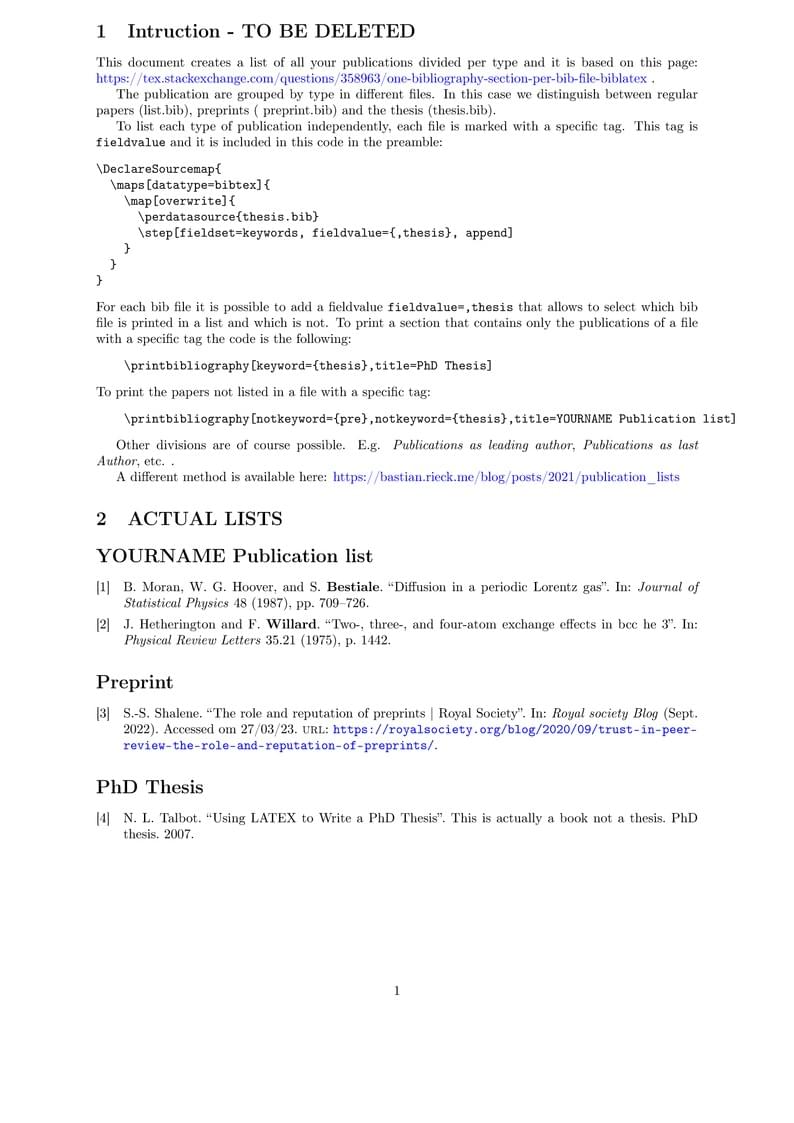
This is a template to create a list of publications divided in different sections (e.g. Publications, PrePrint, Thesis). The documents includes a introduction and several comments in the source code. As an example interesting papers had been used.
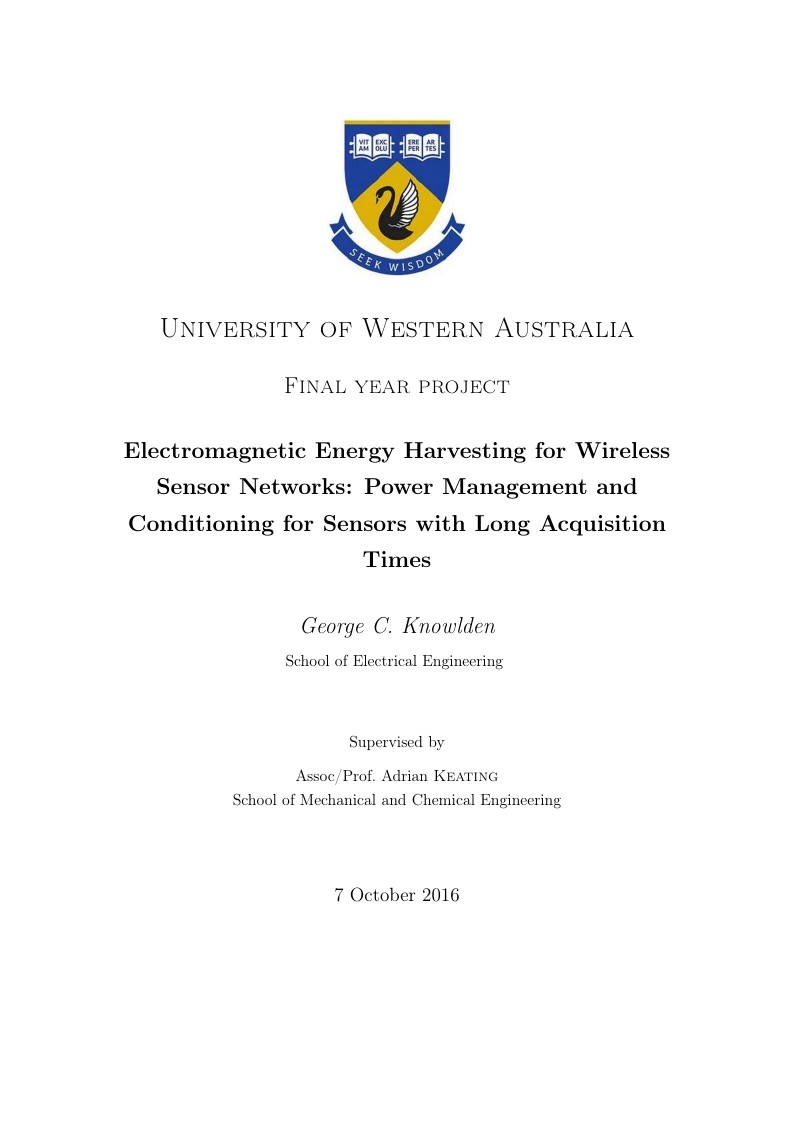
A simple thesis template for use by UWA students for their Final Year Projects. IEEE format referencing uses Biber, lots of useful packages. A nice clean look, without anything complicated.
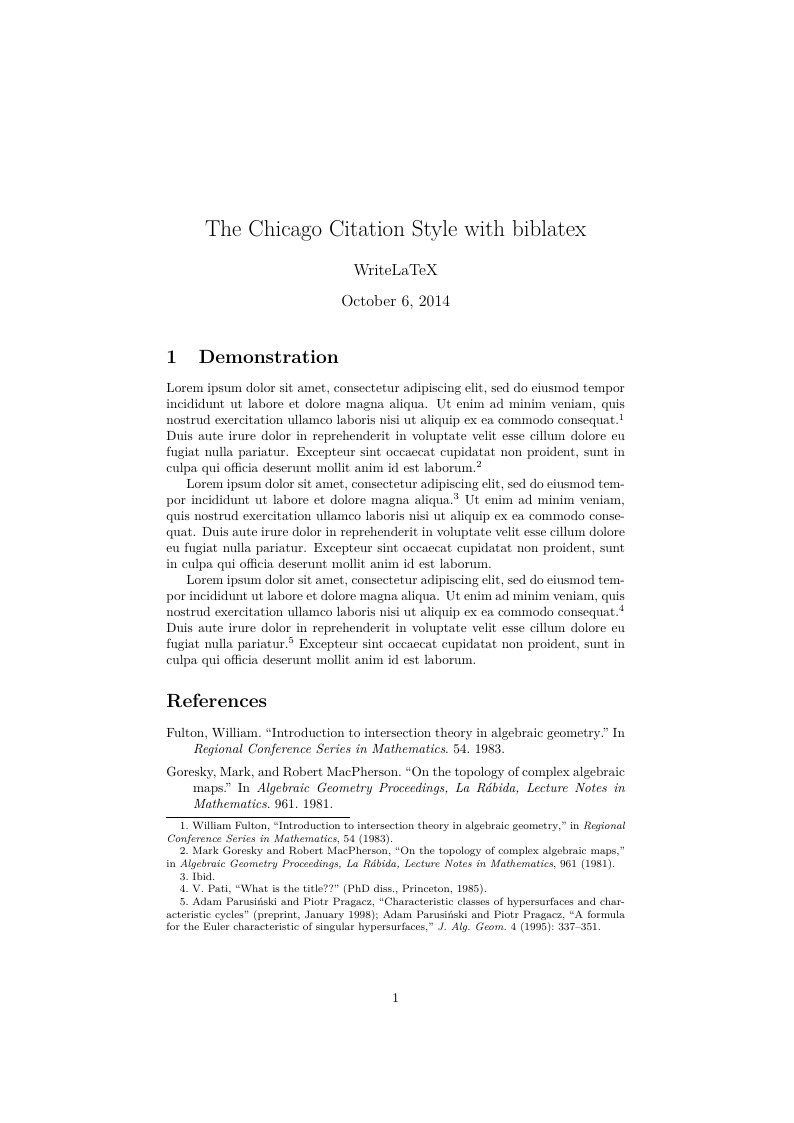
The biblatex-chicago package implements the citation style of the Chicago Manual of Style, 16th edition. In this example, the notes option causes biblatex's autocite command to put citations in footnotes. The package can also produce inline author-year citations in the Chicago style. See the package documentation for more information.
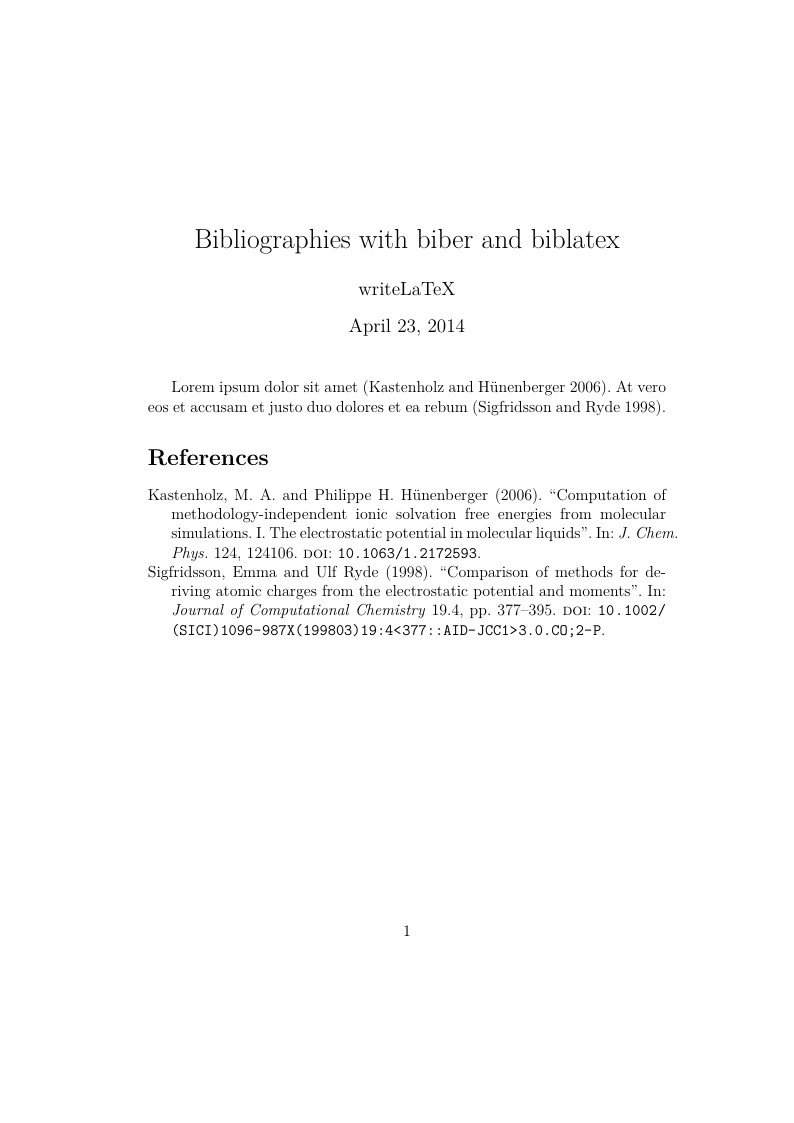
This example shows how to automatically generate citations and a bibliography with biblatex and biber. Biblatex and biber work together to automatically format references and citations like the older cite or natbib and bibtex tool chain, but they offer more powerful and easier to use formatting and better support for special characters (unicode). For a full list of biblatex styles, see the user guide in the biblatex manual.
\begin
Discover why over 25 million people worldwide trust Overleaf with their work.